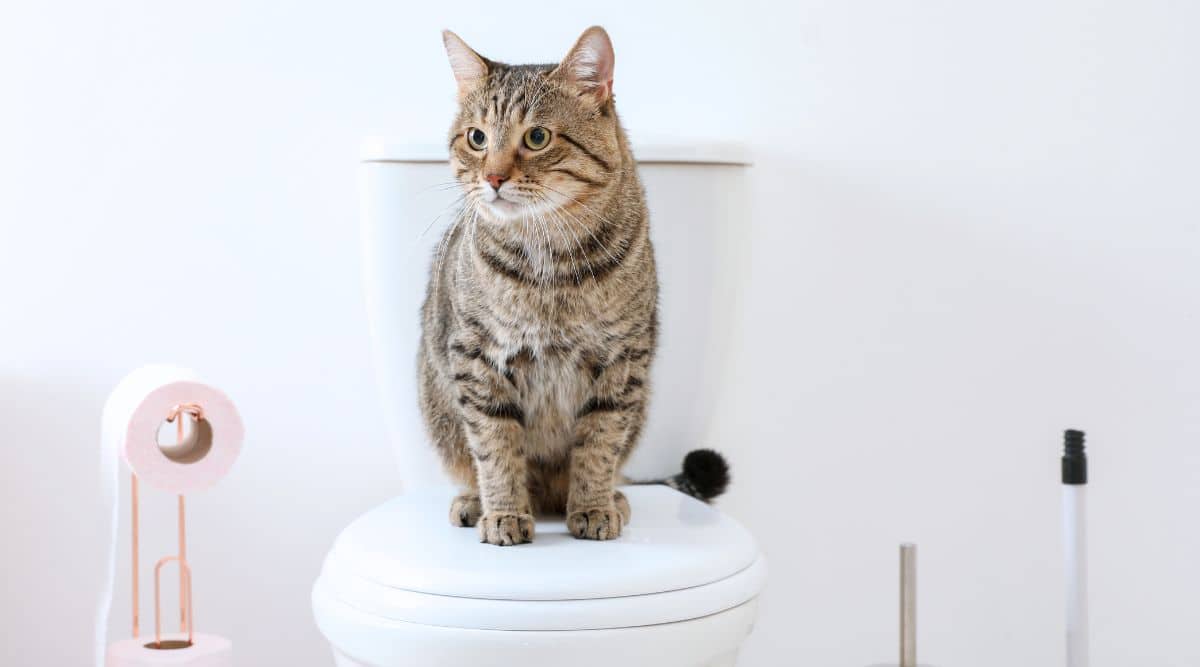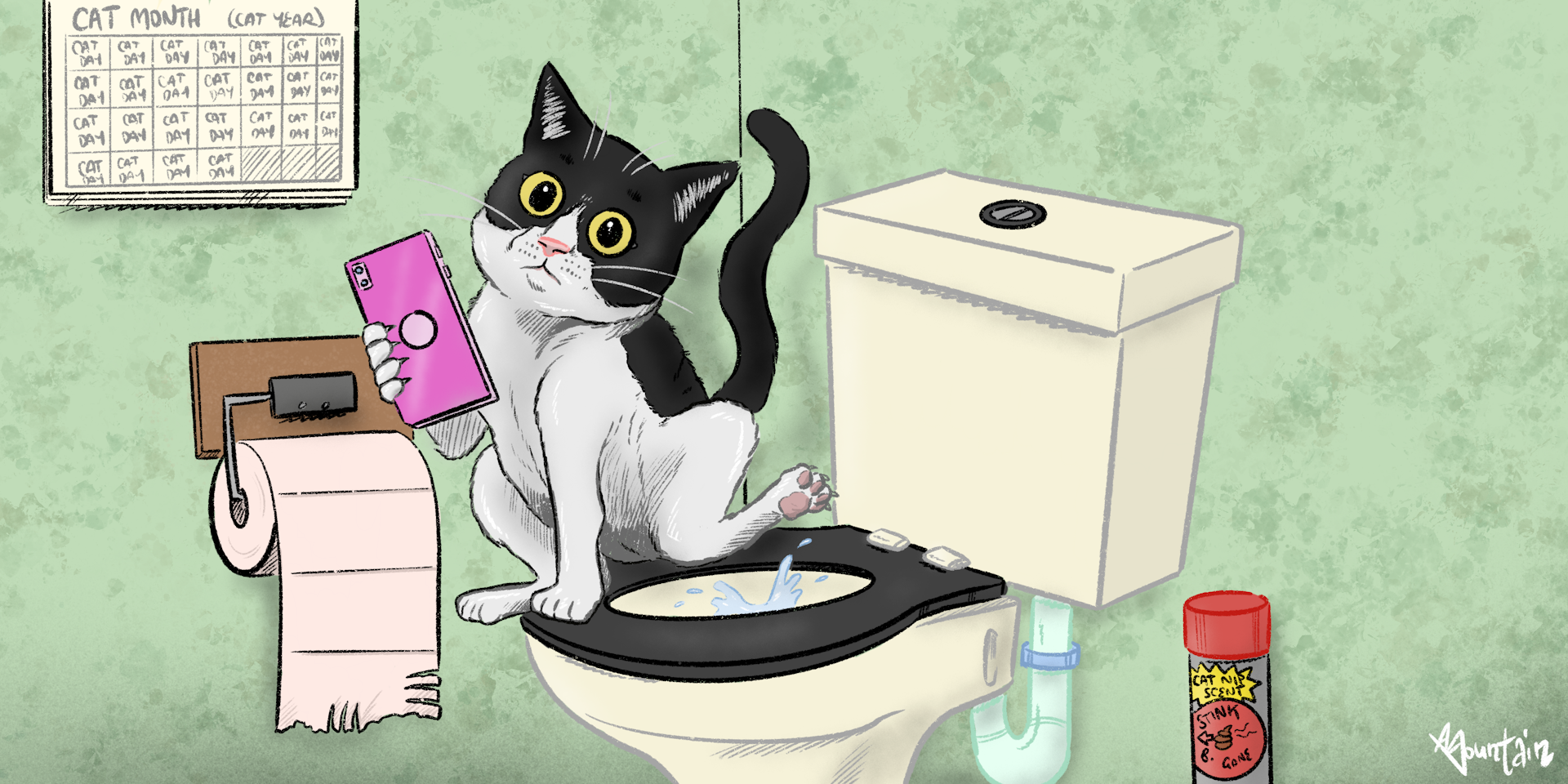Why You Must Never Flush Cat Poop Down Your Toilet - Critical Facts
Why You Must Never Flush Cat Poop Down Your Toilet - Critical Facts
Blog Article
Everyone seems to have their own perception involving Don’t flush cat feces down the toilet.

Intro
As pet cat proprietors, it's vital to bear in mind exactly how we take care of our feline close friends' waste. While it might appear practical to flush pet cat poop down the bathroom, this practice can have destructive effects for both the atmosphere and human wellness.
Alternatives to Flushing
Luckily, there are safer and extra accountable means to get rid of cat poop. Think about the adhering to options:
1. Scoop and Dispose in Trash
One of the most common technique of disposing of feline poop is to scoop it right into an eco-friendly bag and throw it in the trash. Make certain to use a committed litter scoop and take care of the waste quickly.
2. Usage Biodegradable Litter
Choose eco-friendly cat litter made from materials such as corn or wheat. These clutters are eco-friendly and can be safely gotten rid of in the garbage.
3. Hide in the Yard
If you have a yard, think about hiding cat waste in an assigned area away from veggie gardens and water sources. Make sure to dig deep enough to stop contamination of groundwater.
4. Install a Pet Waste Disposal System
Invest in a pet garbage disposal system especially developed for cat waste. These systems utilize enzymes to break down the waste, decreasing smell and ecological impact.
Wellness Risks
In addition to ecological issues, purging cat waste can likewise posture wellness risks to people. Pet cat feces may consist of Toxoplasma gondii, a bloodsucker that can cause toxoplasmosis-- a possibly extreme illness, especially for expecting females and people with damaged immune systems.
Ecological Impact
Flushing feline poop presents damaging virus and parasites into the water, positioning a considerable threat to aquatic environments. These contaminants can negatively impact marine life and concession water quality.
Conclusion
Liable animal ownership prolongs beyond offering food and shelter-- it also includes appropriate waste monitoring. By avoiding flushing feline poop down the toilet and choosing alternate disposal methods, we can reduce our environmental impact and safeguard human wellness.
Why Can’t I Flush Cat Poop?
It Spreads a Parasite
Cats are frequently infected with a parasite called toxoplasma gondii. The parasite causes an infection called toxoplasmosis. It is usually harmless to cats. The parasite only uses cat poop as a host for its eggs. Otherwise, the cat’s immune system usually keeps the infection at low enough levels to maintain its own health. But it does not stop the develop of eggs. These eggs are tiny and surprisingly tough. They may survive for a year before they begin to grow. But that’s the problem.
Our wastewater system is not designed to deal with toxoplasmosis eggs. Instead, most eggs will flush from your toilet into sewers and wastewater management plants. After the sewage is treated for many other harmful things in it, it is typically released into local rivers, lakes, or oceans. Here, the toxoplasmosis eggs can find new hosts, including starfish, crabs, otters, and many other wildlife. For many, this is a significant risk to their health. Toxoplasmosis can also end up infecting water sources that are important for agriculture, which means our deer, pigs, and sheep can get infected too.
Is There Risk to Humans?
There can be a risk to human life from flushing cat poop down the toilet. If you do so, the parasites from your cat’s poop can end up in shellfish, game animals, or livestock. If this meat is then served raw or undercooked, the people who eat it can get sick.
In fact, according to the CDC, 40 million people in the United States are infected with toxoplasma gondii. They get it from exposure to infected seafood, or from some kind of cat poop contamination, like drinking from a stream that is contaminated or touching anything that has come into contact with cat poop. That includes just cleaning a cat litter box.
Most people who get infected with these parasites will not develop any symptoms. However, for pregnant women or for those with compromised immune systems, the parasite can cause severe health problems.
How to Handle Cat Poop
The best way to handle cat poop is actually to clean the box more often. The eggs that the parasite sheds will not become active until one to five days after the cat poops. That means that if you clean daily, you’re much less likely to come into direct contact with infectious eggs.
That said, always dispose of cat poop in the garbage and not down the toilet. Wash your hands before and after you clean the litter box, and bring the bag of poop right outside to your garbage bins.
https://trenchlesssolutionsusa.com/why-cant-i-flush-cat-poop/

Do you like reading up on Don’t flush cat feces down the toilet? Leave feedback directly below. We'd be interested to know your views about this content. We hope that you come back again in the near future. Sharing is caring. Who knows, you may just be helping someone out. Thank you for taking the time to read it.
Click Here Report this page